Trials and Tribulations of a Physicist who Became a Math Geek
How did I go from the brink of changing my major from physics to ceramics (no more math) to the Math faculty of the Air Force Academy? How did I go from choosing to be an experimentalist (too bad at math to be a theorist) to consistently having my theoretical more widely cited than my experimental work? How did I go from hating math to loving it?
After writing almost 3500 words toward answering these questions, it seemed apparent a different approach was needed. In short, I loved science, and I didn’t want to work in restaurants, dig ditches, or fix cars. So, despite my hate and fear of math, I worked 40-50 hours each week outside of class for many years to succeed as a Physics major at LSU and then in graduate school. As a result, I earned the ability to read the “Book of Nature,” which according to Galileo was “written in the language of mathematics.”
Near the end of my time, I recalled that Eugene Wigner had already said it better than I could in his paper, “The Unreasonable Effectiveness of Mathematics in the Natural Sciences.” (https://www.dartmouth.edu/~matc/MathDrama/reading/Wigner.html) Had I read this during my freshman year of college, it would have been much easier to resist the temptation to change my major to ceramics. Wigner’s main point is that we don’t know why, but mathematics is very powerful and it works nearly whenever trying to make sense of the natural world. Succeeding in science without mastery of math is about as likely as succeeding in history or law without being able to read.
Math was uncomfortable for me because I got to college without being very good at it. After 9 and a half years of wrestling, I got good enough at math to solve lots of different kinds of problems and be valuable to employers both as a scientist and as an engineer. A light went on when I realized that it was more my math abilities that empowered solving all kinds of interesting and valuable problems. It wasn’t too long after I began teaching that I realized that the biggest student impediment to learning college physics was their inadequate preparation in math, especially algebra and trigonometry.
After working with the registrar’s office so that the math pre-requisites for the college physics courses were followed, I sat down with some colleagues in the Math department to improve the math courses, focusing on material that is needed in downstream courses and giving less attention to material that students find boring and that is rarely or never used in subsequent coursework or real life. After implementing these fixes, the success rate in our introductory physics courses rose from 40% to over 80% (school-wide) and over 90% in the sections I taught.
A few years later, I was hired in hopes of repeating the success at the Air Force Academy but was given the task of working with the weakest 10% of cadets in math more than the general student population. Rather than address only the pedagogical side of the educational challenge, we decided to simultaneously address the motivational side, by offering the weakest students research opportunities to read the “Book of Nature” themselves with their growing math skills. Not only did we succeed in having the weakest students in math participate in publication-quality research, but the approach of intertwining basic math skills with science and engineering also motivated students to learn the math needed to succeed in USAFA’s challenging technical core (two semesters each of Calculus, Physics, and Chemistry and seven required engineering courses for all graduates).
In summary, I became a math geek, because it was necessary for solving the scientific problems that I wanted to solve. In the process, I learned that despite the uncomfortable transition and hard work required, most students do have the inherent ability to master the math required to meet the academic challenges in front of them. In most cases, motivation is the missing ingredient. As a teacher, solving the motivational challenges will yield better results than merely addressing the pedagogical challenges.
I grew up working in bars and restaurants in New Orleans and viewed education as a path to escape menial and dangerous work environments, majoring in Physics at LSU. After being a finalist for the Rhodes Scholarship I was offered graduate research fellowships from both Princeton and MIT, completing a PhD in Physics from MIT in 1995. I have published papers in theoretical astrophysics, experimental atomic physics, chaos theory, quantum theory, acoustics, ballistics, traumatic brain injury, epistemology, and education.
My philosophy of education emphasizes the tremendous potential for accomplishment in each individual and that achieving that potential requires efforts in a broad range of disciplines including music, art, poetry, history, literature, science, math, and athletics. As a younger man, I enjoyed playing basketball and Ultimate. Now I play tennis and mountain bike 2000 miles a year.


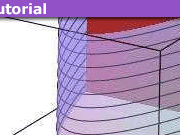
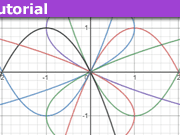
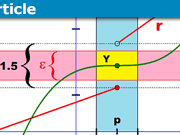
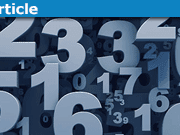
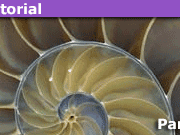
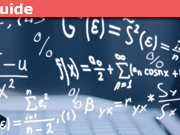
“This is very much the position I am in. I’ve always had a strong interest in science, especially physics, but I thought I’d never be able to study it above the level of semi-popular accounts. I wasn’t good at math all through school, (even though I did have a vague interest in it) to the point I thought I was *unable* to learn it.
The irony is, I took honors-level science classes a year ahead of schedule, but I was always a year *behind* schedule in math. The process of trying to do math in school was so tortuous, I thought I was only a “word” person who happened to love science, because reading and writing came effortlessly to me, whereas math didn’t. Math was the only subject in which I’ve ever had test anxiety.
Later experience, after I became an adult, forced me to try different approaches to teaching myself, ultimately proving that I could learn to do math well, just not the way it was taught in school. Now, I have the chance to study physics, and I’m even working at learning how to write proofs.”
Keep up the good work!
Very fine piece of work… commendable !
Great write up.
It was the opposite for me.
I loved math from the start and majored in applied math,
Later I became interested in physics and marvelled at the explanatory power of math. One that really got to me was the derivation of the Lorentz Transformations from symmetry:
[URL]http://www2.physics.umd.edu/~yakovenk/teaching/Lorentz.pdf[/URL]
You get the feeling its pulled out of the air, but really a close examination shows there are assumptions being made – its just for some reason when using math they are so natural you miss it. Math is strange like that.
Thanks
Bill
This is very much the position I am in. I’ve always had a strong interest in science, especially physics, but I thought I’d never be able to study it above the level of semi-popular accounts. I wasn’t good at math all through school, (even though I did have a vague interest in it) to the point I thought I was *unable* to learn it. The irony is, I took honors-level science classes a year ahead of schedule, but I was always a year *behind* schedule in math. The process of trying to do math in school was so torturous, I thought I was only a “word” person who happened to love science, because reading and writing came effortlessly to me, whereas math didn’t. Math was the only subject in which I’ve ever had test anxiety. Later experience, after I became an adult, forced me to try different approaches to teaching myself, ultimately proving that I could learn to do math well, just not the way it was taught in school. Now, I have the chance to study physics, and I’m even working at learning how to write proofs.